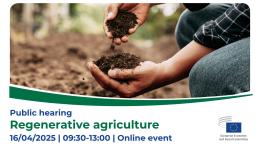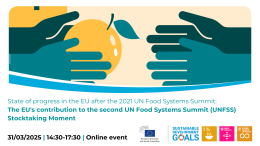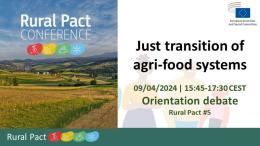European Economic
and Social Committee
Sustenabilitatea alimentară
Alimentația se află în centrul vieții noastre și face parte integrantă din cultura europeană. Cu toate acestea, alimentele pe care le consumăm, modul în care le producem și cantitățile risipite au un impact major asupra sănătății umane, a resurselor naturale și a societății în ansamblu:
- Cetățenii – și, în special, copiii – suferă din ce în ce mai mult de supraponderabilitate și de obezitate din cauza unei alimentații nesănătoase.
- Agricultorii și lucrătorii nu obțin un preț echitabil pentru produsele lor.
- O treime din alimente se pierd sau se irosesc de-a lungul lanțului alimentar.
- Mediul este cel care suportă consecințele, producția și consumul de alimente având efecte dramatice în ce privește schimbările climatice, pierderea biodiversității, poluarea aerului și a apei, degradarea solului etc.
Criza generată de pandemia de COVID‑19 este un semnal de alarmă care îndeamnă la schimbare. Aceasta a demonstrat că aducerea produselor alimentare „de la fermă la consumator” nu poate fi considerată garantată și a demonstrat în cât de mare măsură sunt interconectați actorii și cât de mult sunt interconectate activitățile din întregul sistem alimentar. Sunt necesare, mai mult ca oricând, lanțuri de aprovizionare echitabile, eficiente din punctul de vedere al utilizării resurselor, favorabile incluziunii și durabile în întregul sector al agriculturii, pescuitului și alimentației, pentru a oferi un răspuns omogen nevoilor cetățenilor, fermierilor, lucrătorilor și întreprinderilor.
CESE solicită, de mai mulți ani, o politică alimentară durabilă și cuprinzătoare. O astfel de abordare sistemică integrată este esențială pentru rezolvarea provocărilor multiple, legate între ele, care afectează sistemele alimentare; pentru realizarea sustenabilității economice, ecologice și socioculturale; pentru asigurarea integrării și coerenței între domeniile de politici (precum agricultură, mediu, sănătate, educație, comerț, economie, tehnologie etc.); precum și pentru promovarea cooperării între nivelurile de guvernanță.









